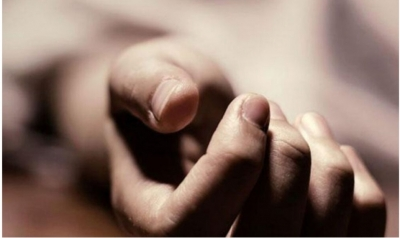Delhi: Lawrence Bishnoi gang member commits ‘suicide’ in prison
By IANS | Updated: August 16, 2025 15:20 IST2025-08-16T15:12:31+5:302025-08-16T15:20:01+5:30
New Delhi, Aug 16 A Lawrence Bishnoi gang member serving his sentence under the Maharashtra Control of Organised ...

Delhi: Lawrence Bishnoi gang member commits ‘suicide’ in prison
New Delhi, Aug 16 A Lawrence Bishnoi gang member serving his sentence under the Maharashtra Control of Organised Crime Act (MCOCA) charges, committed suicide under mysterious circumstance by hanging himself in Mandoli Jail in Delhi on Saturday morning, an official said. A probe has been ordered to rule out foul play in the incident.
The body of Salman Tyagi, who was serving a term after conviction in a number of cases, including murder, extortion and possession of illegal arms, was found hanging in Jail Number 15, said an official.
Tyagi, allegedly active in West Delhi, was earlier linked to the rival Neeraj Bawana gang. Last year, while remaining in jail, he had allegedly executed a firing incident in Rajouri Garden to extort Rs 50 lakh from two businessmen.
After his unnatural death in the prison on Saturday, officials have launched a probe to rule out foul play or involvement of gang war, said the official.
According to the official, they received information in the morning that Salman had hanged himself using a bedsheet.
Thereafter, he was rushed to the jail hospital where he was declared dead by the medical officer, he said, adding that the body was sent for post-mortem to determine the exact cause of his death.
The incident created a flutter in the prison complex, run by the Delhi government, even as the jail administration launched a probe into the mysterious circumstances under which Salman’s body was recovered.
As per the Delhi Prisons Act, an enquiry by a Sub-Divisional Magistrate (SDM) is also ordered in cases of jail inmate deaths, especially when the death is considered unnatural or occurs under suspicious circumstances.
This is usually a magisterial enquiry, as per Section 176 of the Bharatiya Nagarik Suraksha Sanhita, 2023 (BNSS).
In Delhi prisons, when an inmate dies, the body is released to their family or relatives if claimed, unless there are specific reasons like infectious disease or potential for public demonstration.
If the body is not claimed, it is disposed of respectfully, ensuring it doesn't become a public nuisance or cause distress. The process is governed by the Delhi Prisons Transfer of Prisoner, Labour and Jail Act, which outlines the procedures for handling the deceased prisoner's body, said an official.
Disclaimer: This post has been auto-published from an agency feed without any modifications to the text and has not been reviewed by an editor
Open in app